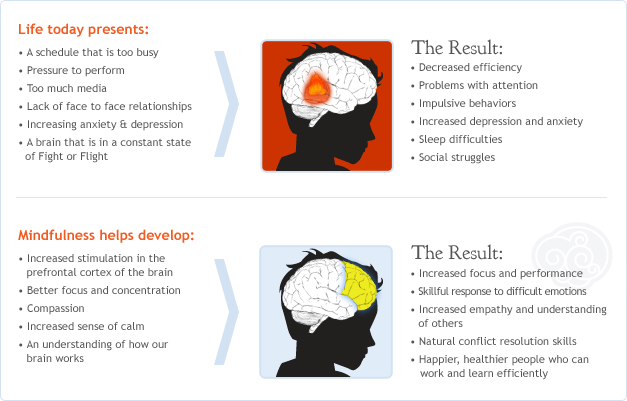

The study found students who participated in the program had significant improvements in peer-nominated prosocial behaviors (i.e., sharing, trustworthiness, helpfulness, taking others’ views), academic self-concept, and self-reported depressive symptomology compared to students in the control group (outcomes reported approximately 1 year after baseline while controlling for outcome pretest).

The evaluation included grade 4 and 5 students enrolled in suburban schools in Canada (66% of participants identified English as their native language, 25% reported an East Asian language).
#Mindup for life trial
Additionally, students who participated in the MindUP program showed significant teacher-reported improvements in aggressive behaviors, oppositional behaviors, attention and concentration, and social and emotional competence (i.e., empathy, compassion) compared to students in the control group (outcomes reported approximately 10 weeks after baseline).Ī randomized controlled trial study (RCT) conducted in the 2007-2008 school year (published in 2015) supported the effectiveness of MindUP for elementary school students. This evaluation found that students who participated in the program showed significant increases in self-reported optimism compared to students in the control group (outcomes reported approximately 10 weeks after baseline). Based firmly in neuroscience, MindUP teaches the skills and knowledge children need to regulate their stress and emotion, form positive relationships, and act with kindness and compassion.

This evaluation included 246 students who were in grades 4 to 7 in Canada (57% of the participants identified English as their first language, 23% reported an East Asian language).
#Mindup for life professional
The UFT works hard to support the work you do in schools and in your professional development. Our ranks are growing because of the important role that paraprofessionals play in ensuring the needs of all students in our schools are met.

Results from a quasi-experimental (QE) study conducted in the 2005-2006 school year (published in 2010) supported the effectiveness of MindUP for elementary school students. Several years ago, we had 19,841 paraprofessionals.


 0 kommentar(er)
0 kommentar(er)
